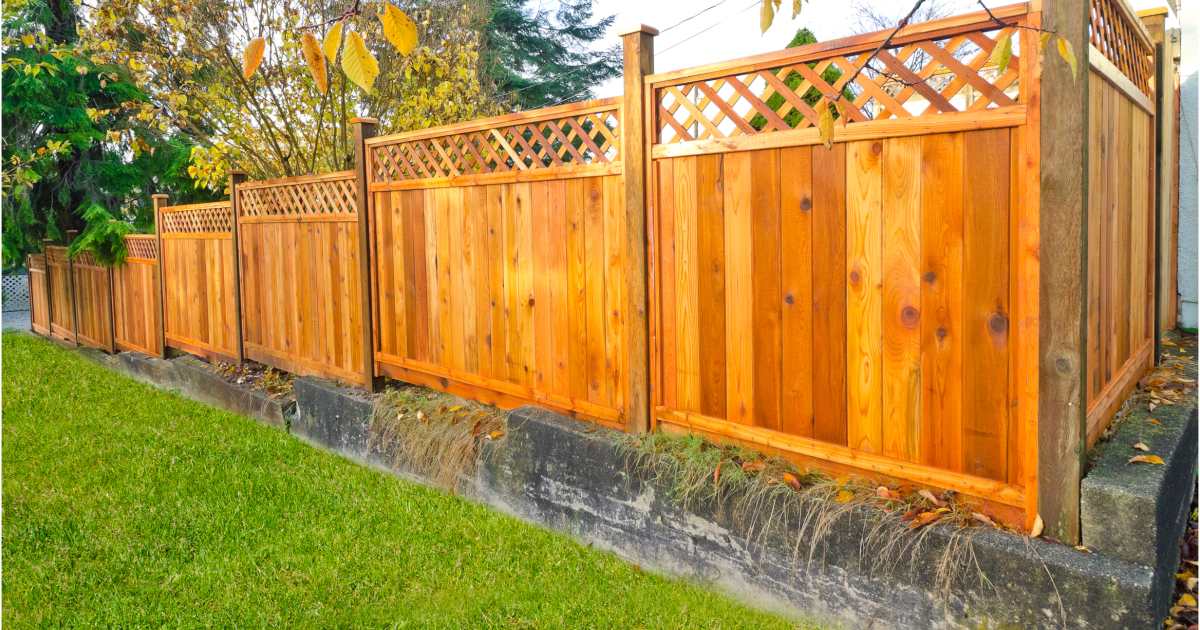All Categories
Featured

When it concerns choosing the appropriate fencing product for your residential property, aluminum, vinyl, and wood are among one of the most popular alternatives. Each material offers one-of-a-kind advantages that fit various demands, choices, and budget plans. Understanding the pros and cons of each type can help you make an educated decision based on your concerns, whether that's visual appeal, toughness, or maintenance needs. Listed below, we break down the advantages and drawbacks of these 3 common fencing products.
Timber Fence. Pros:
Visual Charm: Timber fencings offer an all-natural, timeless appearance that enhances most sorts of landscaping and design. They can be easily customized with paint or stain, offering you the liberty to produce the best shade and surface for your residential property. Adaptability: Wood can be utilized to develop a variety of fence designs, from standard picket fencings to much more modern-day designs like privacy fences or rustic ranch-style fences. It's simple to change or add to gradually if your demands alter. Affordability: Wood is normally a lot more inexpensive than plastic or aluminum, making it an attractive option for property owners on a budget plan. The initial price of a timber fencing is generally lower than the other materials. Disadvantages:

Maintenance Needs: Timber fences require normal maintenance, consisting of staining, sealing, or paint to protect them from weathering, rot, and pest damages. Without appropriate treatment, wood can degrade promptly. Toughness: Wood is at risk to damage from bugs like termites, and it can warp, fracture, or split with time due to direct exposure to the components. In locations with extreme climate condition, timber might need to be changed a lot more frequently than various other materials. Limited Lifespan: While timber fences can last for several years with appropriate treatment, they normally have a shorter life-span than vinyl or aluminum fences. Plastic Secure fencing. Pros:
Reduced Maintenance: One of the biggest advantages of vinyl fence is its reduced maintenance demands. Unlike wood, vinyl doesn't require to be repainted, tarnished, or secured. It's immune to fading, fracturing, or bending, making it excellent for homeowners who desire an easy fencing. Resilience: Vinyl fences are very long lasting and immune to the elements, including UV rays, rainfall, and moisture. They're likewise impervious to parasites, such as termites, that can harm wood fencings. Selection of Styles: Vinyl fencings can be found in a variety of styles and colors, and many resemble the look of wood without the maintenance downsides. You can select from privacy fencings, picket fences, and more to suit your demands. Lengthy Lifespan: With appropriate care, plastic fences can last decades, far longer than timber fencings, and they come with warranties that offer assurance. Cons:
Higher Preliminary Expense: While plastic fencings can conserve cash on upkeep throughout the years, they have a tendency to have a greater upfront expense than wood fences, which might be a deterrent for some customers. Minimal Modification: While plastic fences are available in a variety of styles and colors, they lack the personalization adaptability that timber offers. You're restricted to the pre-designed panels readily available, which could not fit every unique visual. Potential for Fracturing in Cold Climates: In extreme chilly temperatures, plastic fencings can end up being breakable and might split under impact, making them much less ideal for locations with freezing winters. Aluminum Secure fencing. Pros:
Longevity and Stamina: Aluminum is a lightweight yet solid product that resists rust and rust, making it perfect for coastal locations or places with high moisture. Light weight aluminum fencings need marginal maintenance and can endure the components for numerous years. Aesthetic Appeal: Aluminum fences provide a streamlined, contemporary look. They can be found in a variety of decorative styles and can be used to develop a more stylish or modern appearance for your residential property. Low Maintenance: Aluminum fences don't call for painting or sealing, and they're immune to rust and deterioration, making them unbelievably low maintenance over time. Security: Aluminum fences provide a greater level of safety compared to plastic or timber fences since of their strong construction. They can be outfitted with gateways and locks to supply a safe and secure boundary around your building. Cons:

Expense: Light weight aluminum fences are commonly extra pricey than wood or plastic fencings, both in terms of materials and installation expenses. This higher rate point can be a downside for budget-conscious property owners. Much Less Personal privacy: Light weight aluminum fences generally have a more open layout, with pickets spaced apart to enable exposure with the fencing. This might not be the ideal option for your residential property if privacy is a priority. Prone to Denting: While light weight aluminum is rust-resistant, it can still be nicked or bent if struck with force, such as by a vehicle or hefty devices. While it will not rust, it might not keep its immaculate look if it gets harmed. Which Material is Right for You? Picking the very best fencing material relies on your specific needs, spending plan, and lasting strategies for your building. If you value aesthetic customization and are prepared to maintain it routinely, wood might be your ideal option. Vinyl could be the suitable solution if you like low-maintenance toughness and are eager to invest a bit extra in advance. On the various other hand, if you need a long-lasting, safe and secure fence with a smooth look, light weight aluminum might be the appropriate product for you.
Eventually, consider your climate, upkeep preferences, and visual desires when choosing on your secure fencing material. Each alternative has its weaknesses and toughness, yet with the ideal treatment and installment, all three can supply reliable and eye-catching borders for your residential or commercial property.
Latest Posts
Reliable Auto Repair at Montclare Auto Repair - Book Today!
Published Apr 20, 25
2 min read
Experience Coastal Beauty at Deauville Inn
Published Apr 19, 25
1 min read
Constructed on Quality, Driven by Solution
Published Apr 19, 25
1 min read